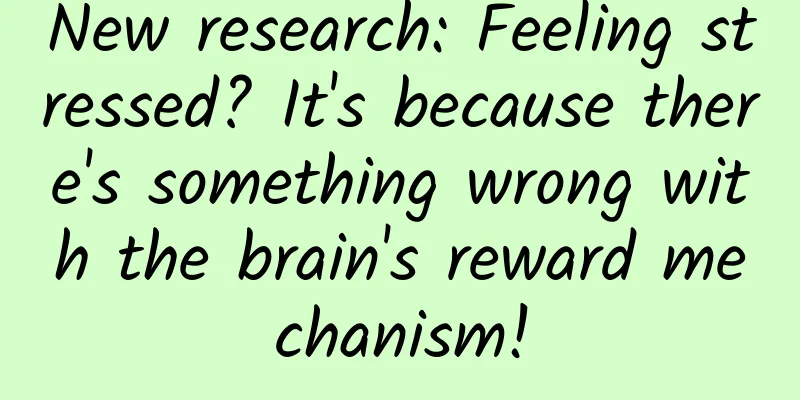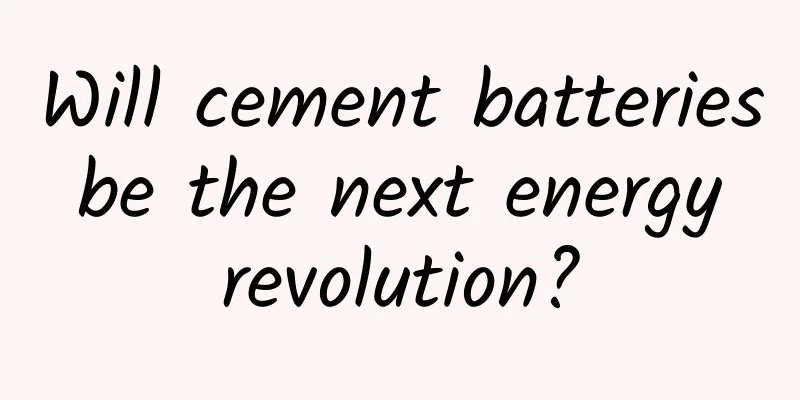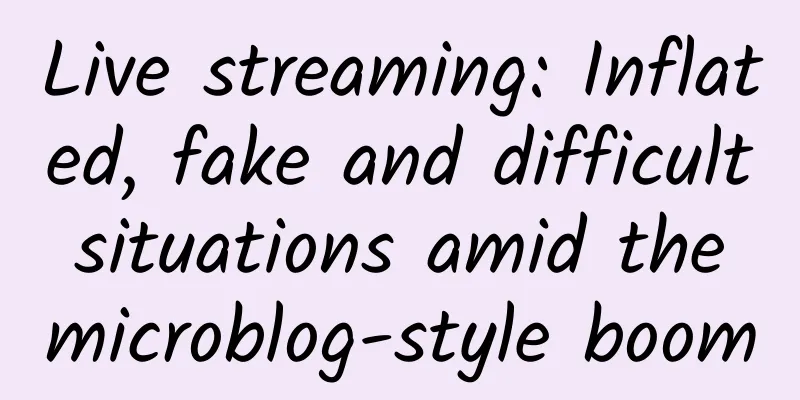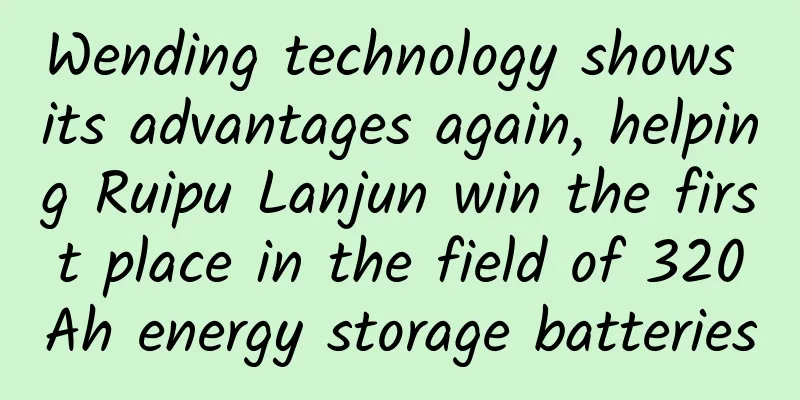New research: Feeling stressed? It's because there's something wrong with the brain's reward mechanism!

|
In life, we often face various pressures. Some people can cope with them with ease, while others get into trouble. What determines this difference? Recently, a study on the interaction between the amygdala and hippocampus in the brain published in the journal Nature revealed the answer. This article will take you into this mysterious field and understand the neural mechanism behind stress coping. 1. Stress and the Brain Stress, a seemingly abstract word, is actually closely related to our lives. From a biological point of view, stress is a physiological and psychological reaction. It is a protective mechanism produced by the brain when facing external stimuli. When we feel stressed, two key areas in the brain, the amygdala and hippocampus, begin to play a role. The amygdala, located deep in the brain, is a core area for emotion regulation. It is responsible for processing negative emotions such as fear and anxiety, and is also involved in reward and motivation processes. When stress strikes, the amygdala quickly takes action and puts us into "fight or flight" mode. The hippocampus is mainly responsible for memory formation and spatial orientation. These two areas are closely related in the process of coping with stress and jointly affect our behavior and emotions. Simply put, it is responsible for analyzing the source of stress and finding coping strategies from past experience. With the help of the hippocampus, we can make wise choices when facing stress. 2. Neural Basis of Stress Coping Ability Research has found that the interaction between the amygdala and the hippocampus determines an individual's ability to cope with stress. Specifically, this interaction is reflected in the following two aspects: 1. Reward selection perception: Under stressful conditions, individuals with higher reward selection perception can more keenly capture reward information, thereby maintaining a preference for high-value rewards. This ability mainly depends on the activity of the amygdala. Studies have found that under stressful conditions, the activity of neurons in the amygdala related to reward selection increases, making it easier for individuals to choose high-value rewards. Simply put, people with strong stress resistance have a more rapid and moderate response in the amygdala when facing stress. It knows when to be nervous and when to relax. 2. Decision-making mode: When faced with reward choices, the interaction between the amygdala and the hippocampus determines whether the individual tends to stick to the original choice or try a new one. Under stress, the connection between the amygdala and the hippocampus weakens, resulting in a change in decision-making patterns. This change makes individuals more susceptible to negative emotions, which in turn affects their ability to cope with stress. Simply put, the hippocampus plays the role of a "regulator" in the stress resistance process. It can help us assess the severity of stress, adjust the response of the amygdala, and avoid excessive stress. 3. Neurological differences between those who are “strong” in stress resistance and those who are “weak” in stress resistance 1. Strong people who can cope with stress: In stressful situations, the connection between the amygdala and hippocampus is relatively close, which can effectively transmit reward information. This enables them to maintain their pursuit of high-value rewards when facing stress, thus better coping with stress. 2. "Weak" people who are not good at dealing with stress: Under stressful conditions, the connection between the amygdala and the hippocampus is weakened, which leads to the obstruction of reward information transmission. When faced with stress, they tend to give up high-value rewards and fall into negative emotions. 4. Neuromodulation: A new way to improve stress coping ability Understanding the interaction mechanism between the amygdala and the hippocampus provides us with new ideas for improving our ability to cope with stress. In recent years, neuromodulation technology has gradually become a research hotspot. One of the methods is to improve stress resistance by stimulating the connection between the amygdala and the hippocampus. The study found that activating neurons projecting from the amygdala to the hippocampus through chemical genetics can strengthen the connection between the two regions and improve the efficiency of reward information transmission. Experiments have shown that this method can effectively improve the behavioral performance of individuals under stressful conditions and enhance their ability to cope with stress. Stress is everywhere, and learning to deal with it is an essential ability for modern people. By deeply studying the interaction between the amygdala and hippocampus in the brain, we are expected to find new ways to improve stress coping ability, which will bring good news to the majority of stress patients. At the same time, this also provides us with a new perspective to understand human psychological activities and helps to reveal the mysteries of the brain. With the development of neuroscience, we have reason to believe that neuromodulation technology will bring more possibilities for the treatment of stress-related diseases. Let us pay attention to the progress in this field and learn to dance with stress! References: Xia F, Fascianelli V, Vishwakarma, N. et al. Understanding the neural code of stress to control anhedonia. Nature (2024). https://doi.org/10.1038/s41586-024-08241-y |
<<: The "slowest bird" may not fly first, but it may have the longest wings
>>: Can you use hot water to pour hot water on frozen car windows in winter? | Car "rumor" crusher
Recommend
Ideas for setting up information flow accounts, a must-read for beginners!
A good information flow account structure helps u...
Why is there always the sound of marbles falling to the floor upstairs in the middle of the night?
I don't know if you have ever encountered suc...
How to effectively use the AARRR model to acquire and convert customers?
Taking two activities as examples, this article s...
Why are more and more strong typhoons coming earlier?
A strong typhoon is a tropical cyclone with great...
There are "worms" in bananas. Will eating them cause brain death 12 hours later? Most people don't know...
This article was reviewed by Tao Ning, PhD, Assoc...
8 tips for achieving the best advertising results with a limited budget!
Have you ever encountered this situation? You took...
How to deeply interpret those operational professional terms?
"After launching this activity, the daily UV...
Live broadcast operation plan sop
What is the effect of online live streaming on cu...
Deep interaction between UIWebView and JS
[[145431]] The cause of the matter is still drive...
Volkswagen executives may have known about the amount of compensation for cheating and were suspected of failing to inform investors in a timely manner
According to German newspaper Bild am Sonntag, Vo...
How do I migrate a WeChat mini program to a Baidu mini program?
Q: How do I migrate a WeChat mini program to a Ba...
A large hatchback with a 3-meter wheelbase and free AI visual driving as standard, can the Xiaopeng P7+ challenge the Xiaomi SU7?
In September 2024, Xpeng Motors delivered 21,352 ...
Can Apple’s wake-up call for Qualcomm’s industry monopoly continue?
Apple is claiming $1 billion in patent licensing ...
Help! How to put giant "cockroaches" in ramen!
Recently, a ramen restaurant in Taipei, China has...









